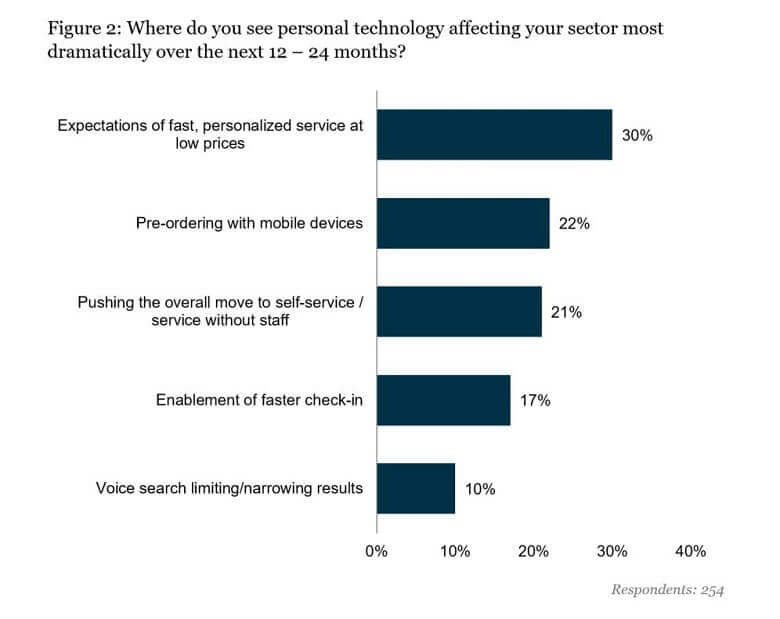
The end goal for travel and hospitality brands used to be securing a booking. Now, in an increasingly competitive market, many are placing a greater focus on securing the best all-round ‘experience’.
In fact, this emphasis on customer experience is so high that it has now collectively overtaken customer acquisition as the biggest business priority in travel.
This finding comes from Econsultancy’s Digital Trends in the Travel and Hospitality Sector report in association with Adobe, which is based on a survey of over 600 marketing executives from OTA’s, transportation, hospitality and restaurant companies.
So, why is this the case, and what other trends are impacting the industry? Here is a look at some key insights from the report.
Success means adapting the customer experience to mobile
Today, mobile represents roughly one third of travel-related sales, with the mobile share growing around 15% year over year.
As a result, adapting the customer experience to mobile and personal tech will be a key characteristic of successful travel brands in the years to come.
Interestingly, while features like voice search and location data will also provide opportunity for brands to improve CX – the over-arching trend looks to be all-round faster service.
This means reducing the time between consumer desire and completed action, via features such as pre-ordering and speedy check-in.

Data isn’t the only barrier to personalisation
Online travel agencies are 56% more likely than other sectors to cite data as the greatest barrier to delivering personalised experiences.
So, while these organisations might possess the ability to collect sufficient information on customer’s cross-device usage, this data often remains siloed and therefore unused.
For other hospitality and restaurant brands, however, the human element is often the biggest roadblock to personalisation.
This is because personalisation efforts require a certain amount of sophistication on top of data and technology, meaning if teams lack time, skills, and enthusiasm – it is going to remain a big challenge.




